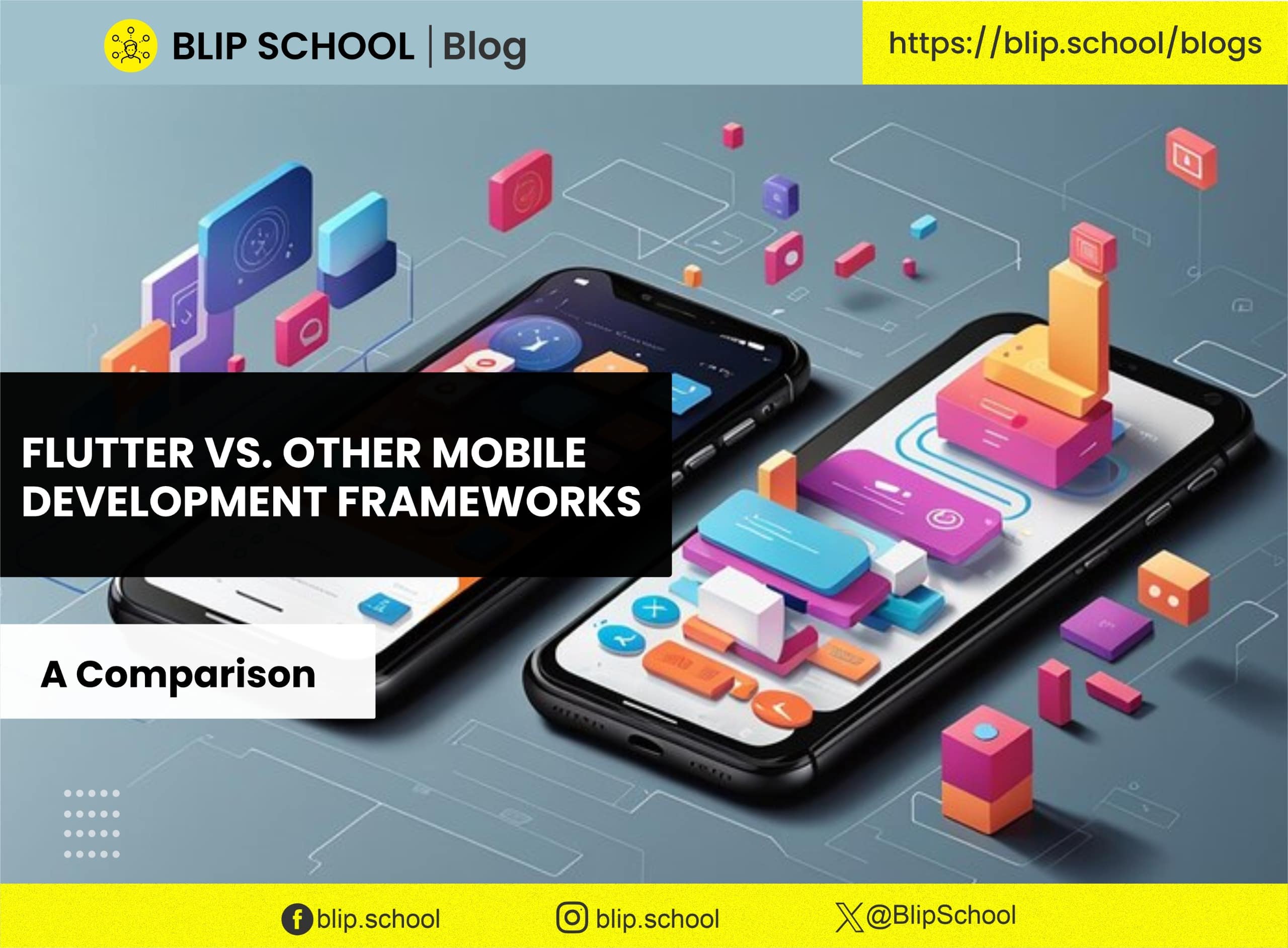
Flutter vs. Other Mobile Development Frameworks: A Comparative Analysis
Introduction
In the rapidly evolving world of mobile app development, the choice of a development framework can be a pivotal decision for developers and businesses alike. With the advent of cross-platform solutions, the debate over which framework to choose has become more relevant than ever. This article aims to shed light on Flutter and how it stacks up against other popular mobile development frameworks.
Flutter: An Overview
Flutter, developed by Google, has emerged as a frontrunner in the realm of cross-platform mobile app development. At its core, Flutter is designed around a widget-based architecture, enabling developers to create visually appealing and highly customizable user interfaces. The use of the Dart programming language, coupled with Flutter’s impressive performance metrics, makes it a compelling choice for developers seeking a smooth and efficient development experience.
Other Mobile Development Frameworks
While Flutter continues to gain traction, it is not without competition. Frameworks such as React Native, Xamarin, and Ionic have their own set of loyal followers. React Native, backed by Facebook, offers a rich ecosystem and native-like performance. Xamarin, with its .NET foundation, appeals to developers looking for robust cross-platform support. Ionic, known for its web technology-based approach, provides a platform for building hybrid apps with a single codebase.
Comparative Analysis
Performance
When it comes to performance, Flutter’s ability to compile to native code gives it a significant edge, delivering a smooth and responsive user experience. In contrast, frameworks like React Native and Ionic rely on bridges and web views, which can introduce performance bottlenecks.
Developer Experience
Flutter’s hot reload feature is a game-changer, allowing developers to see changes in real-time without restarting the app. This, along with a supportive community and extensive documentation, makes Flutter an attractive option for developers. React Native also boasts a large community and a wealth of libraries, while Xamarin and Ionic offer unique advantages in terms of developer tools and integration capabilities.
Design and UI
Flutter’s rich set of widgets and the ability to create custom UI components give developers the freedom to bring their creative visions to life. React Native’s component-based approach and Xamarin’s use of standard UI controls also provide flexibility in design, though they may require additional effort to achieve the same level of customization as Flutter.
Code Reusability and Maintenance
All frameworks offer a degree of code reusability, but Flutter’s single codebase approach simplifies the process of maintaining and updating apps across multiple platforms. React Native and Xamarin also support code sharing, while Ionic’s use of web technologies makes it easy to repurpose web app code for mobile platforms.
To learn more about Flutter , check out: Introduction to Flutter and how you can use it to build cross platform apps
Case Studies
Several high-profile case studies illustrate the strengths and weaknesses of each framework. For instance, the Alibaba app is a testament to Flutter’s capabilities in handling complex commercial applications. Similarly, the Facebook Ads app showcases React Native’s potential for delivering native-like performance.
Pros and Cons
Each framework has its own set of advantages and drawbacks. Flutter’s rapid development cycle and expressive UI are offset by its relatively young ecosystem. React Native’s maturity comes with a steeper learning curve, and Xamarin’s enterprise-grade features may come with higher costs. Ionic’s ease of use for web developers is balanced by its reliance on web technologies, which may not always deliver the best performance.
Conclusion
The choice of a mobile development framework depends on various factors, including project requirements, developer expertise, and long-term maintenance considerations. As Flutter and its competitors continue to evolve, developers and businesses must stay informed and adaptable to navigate the dynamic landscape of mobile app development.
If you’re interested in diving deeper into Flutter, at Blip school, we offer a range of Flutter programs, from beginner to advanced levels. These programs provide comprehensive learning experiences, helping you to master Flutter and stay ahead in the ever-evolving world of mobile app development.
Ready to get started with Flutter? Click here to view our Flutter programs and embark on your learning journey today!
